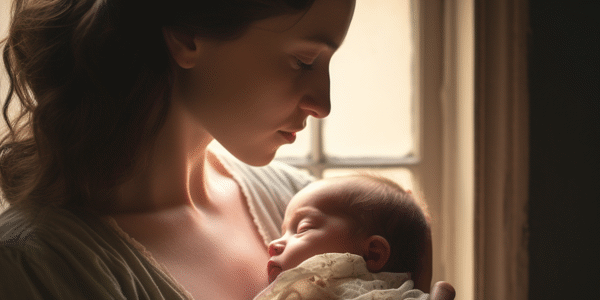Quite often, the experience of going into neonatal care with your baby is unexpected. A small percentage of people will know in advance if their baby will be born prematurely, or sick, but the majority of people won’t know about NICU before having a baby. The number one thing that parents say to me is, “Why did no- one tell me”... so, I am here to tell you what you may need to know about neonatal care.
One in seven babies will need neonatal care support when they are born, and 60% of those babies are term. 1 in 13 babies is born prematurely (before 37 weeks). I don't know about you, but this was a higher number than I was expecting, and yet, we still don’t really talk about what to expect from neonatal care, meaning there is limited opportunity for preparation.
I am a Clinical Psychologist who supports parents who have been through neonatal care or birth trauma, I am also a parent with lived experience. My baby was born at 31 weeks in 2019, and we spent five weeks in neonatal care. I came out of neonatal care, trying to find people who were talking about the emotional impact of hospital admissions, and I couldn’t find them, so I created the community myself, and now I offer free online support via social media, 1:1 therapy support, group therapy, free resources, webinars, workshops and a podcast.
Here are ten things that I wish I had known and what you can expect if you find yourself or a friend or family member in neonatal care:
A Tour of NICU
Before your baby is born, if there is time and capacity, you may be able to look around the neonatal unit, meet the staff and get a chance to ask questions. This may be done virtually or in person. It is worth finding out what level NICU your local hospital has, as it may be that you will need to travel to be able to access the right level of care that your baby needs, depending on what gestation they are born at and the level of medical intervention they may need.
Why May Your Baby Need Neonatal Care?
Your baby may need extra medical support after they are born due to being born prematurely or sick. Term babies may need extra support, too. Common reasons for this are jaundice, respiratory issues, hypoglycemia, HIE (hypoxic-ischemic encephalopathy- brain damage caused by a lack of oxygen to the brain), or infection. Commonly, babies may need extra support with breathing, feeding or stabilisation after birth.
Can I Hold My Baby?
The world health organisation has recently spoken about the importance of skin-to-skin care for babies born prematurely or sick. It is recommended that babies should be given every opportunity to be able to have skin-to-skin after birth; however, some hospitals are just catching up with this information, and it may be that they prefer to stabilise your child first or even take them to the neonatal unit before you are able to hold them.
It is OK to ask if you are able to have skin-to-skin or to see your baby straight after birth if that is important to you. If your baby is taken to NICU, it may be some time before you are able to visit them, as it's likely that staff will prioritise Mum being medically stable before visiting. Often, the NICU team will encourage one parent or birth partner to come to NICU with the baby, meaning that they can take photos, touch the baby (if appropriate) and give feedback to Mum as to how the baby is doing. This may be something you wish to discuss with your partner prior to having your baby.
When you meet your baby for the first time in NICU, you can absolutely ask the staff whether it is OK for you to hold your baby. They may say yes, in which case, they will encourage you to wash your hands and then participate in something that is called “kangaroo care”, where you do skin-to-skin. If your baby is not stable enough to be out of the incubator, they may tell you that you can place your hands around your baby; this is called containment holding (or hand hugs), where you can put your hands on your babies head and feet, gently holding them.
As time goes on and your baby is more stable, then you will be encouraged to spend time holding your baby, engaging in skin to skin and caring for them.
[Find out more from the World Health Organisation here]
What Does Medical Care, Equipment and Monitoring Look Like?
Your baby will receive individualised medical care tailored to their needs.
Expect round-the-clock monitoring, including vital signs, feeding schedules, and assessments of their overall health. The unit will try to stay as quiet as possible, your baby may have a cover over their incubator at times to try and replicate the womb environment, but it can also feel quite overwhelming at times, as there may be bright lights, beeping noises and lots of members of staff.
Your baby may have a tube in their nose or mouth for feeding and monitors on their feet and chest for vitals. For support with breathing, they may have a range of different medical interventions based on their needs. It is worth asking the staff whether there is a glossary of terms that you can see, as often people speak in abbreviations, and that can feel confusing. If you do not know what the staff are talking about, it is OK to ask.
Can I Feed My Baby?
You may be encouraged to express colostrum before meeting your baby; if you want to breastfeed. It is important to start hand expressing and gathering colostrum as soon as you possibly can (which may feel strange).
The NICU staff will guide you on feeding techniques and ensure your baby receives the right nutrition. You will be encouraged to get involved in feeding your baby by tube, bottle or breast as soon as possible.
Bonding With My Baby
It can feel really difficult to bond with your baby when there has been so much disconnection. It is normal to feel a gradual build-up of love and connection rather than experiencing the “rush of love” you hear spoken about so regularly. You may have just been through something really tough, and it is normal for your brain to be in “fight, flight or freeze” mode.
Here are some things you can do to encourage bonding
Containment holding or kangaroo care
Talking to your baby, reading to them, singing to them
Using scent cloths (where you have a swatch of fabric next to your baby, and you keep one down your top and swap them regularly to swap each other's scent)
Decorate their incubator with pictures, muslins, and soft toys (where able)
Feeding them, caring for them, changing them
Advocating for your baby
Naming your baby and imagining life outside of NICU
When the time comes, dress them and bathe them.
Take photos, document, use a journal or diary, and do footprints and handprints.
Ask the staff to be involved in as many firsts as possible.
Who Is Involved in the Care of My Baby?
A team of healthcare professionals (including neonatologists, nurses, lactation consultants, occupational therapists, psychologists, physiotherapists, and more) will collaborate to provide comprehensive care for your baby. Usually, there is a ward round at least once a day where the team will come together to discuss your baby's care. You are very much involved in this team and are the most important person as your child’s parent. Sit in on these ward rounds, keep a note of what is being said, and ask questions. It is OK to ask if you need time to think about what is being said before decisions are to be made.
Leaving Your Baby
Sadly, there may be a time when you are discharged from maternity care before your baby is ready to come home. Most units do not have facilities for parents to stay overnight all the time, so you may need to come home without your baby. This can be really painful, and it is normal to find this upsetting.
Things that can help are establishing a “goodbye for now” routine, where you hold your baby, talk to them, read to them, sing to them and say goodnight for now. You can always call the unit to make sure your baby is OK, and some units even have video contact so you can see your baby whilst away from them. There also may be facilities such as Ronald Mcdonald housing or “rooming in” spaces where you can stay overnight and be close to your baby.
NICU Can Be a Rollercoaster: Emotional Support
It is commonly said that NICU is a rollercoaster. It is normal to feel an array of different emotions- sadness, shock, anxiety, grief, anger, guilt, jealousy, joy, happiness, disconnection, and the list goes on. All of it is OK, and all of it is valid.
It is so important to look after yourself, so taking time for yourself away from the unit is vital in being able to be the strongest version of yourself for your baby. Make sure that you are eating, drinking, getting some fresh air and taking your pain medication as a base level of self-care. You are not alone in how you feel. There is support available for you.
Coming Home
When the time comes to go home, you may feel a range of emotions - joy and excitement for coming home, but it's also common to feel a little anxious to leave the safety of the monitoring and the extra nursing support.
Find people you can connect with who have been through similar situations, and allow yourself grace, time and validation for whatever and however you feel. The impact of NICU can stay with you after you have left the ward; if you feel like you need extra support, please get in touch with your GP or look at my support blog to find a whole range of help. You are not alone.
Entering the NICU journey can be overwhelming, but with the right information and support, you can navigate this experience. Remember that the NICU staff is dedicated to your baby's well-being, and your involvement as a parent plays a crucial role in their care.
Embrace each step forward and find solace in the progress your baby makes, knowing that you're providing them with the love and care they need to thrive. Know you are not alone and that all of your feelings and thoughts are valid.






